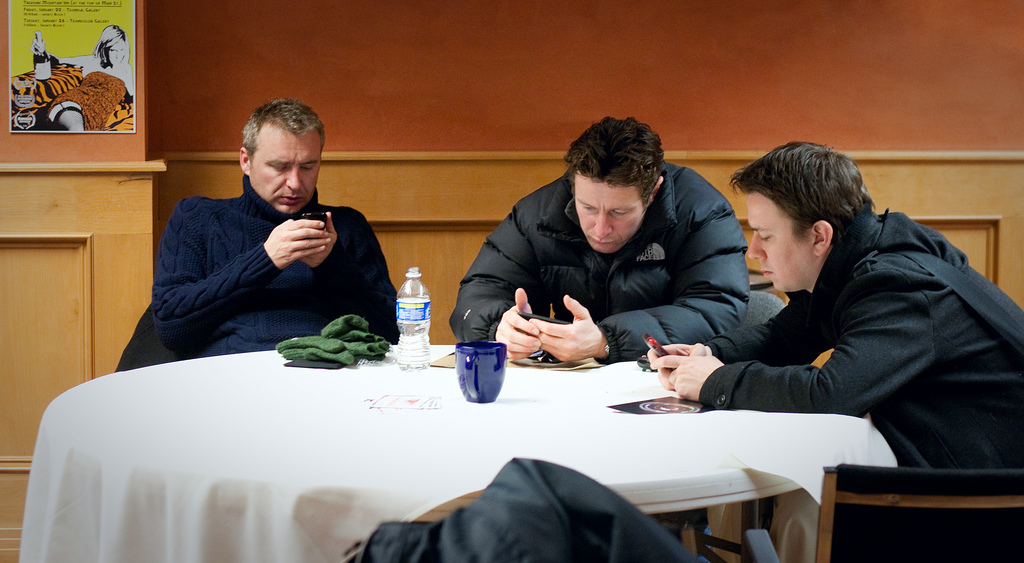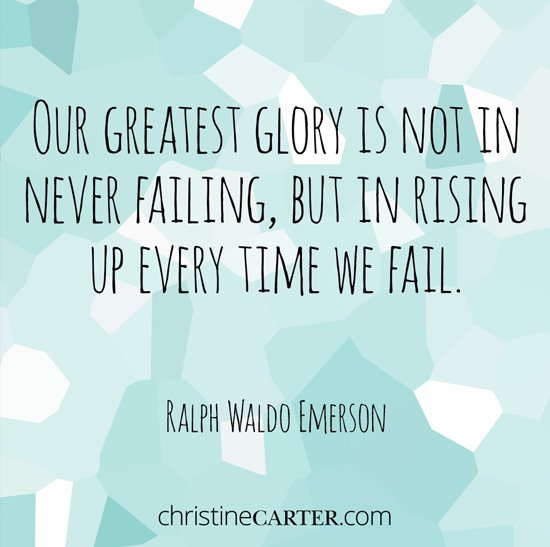Jill Suttie sat down with me recently to talk about my new book
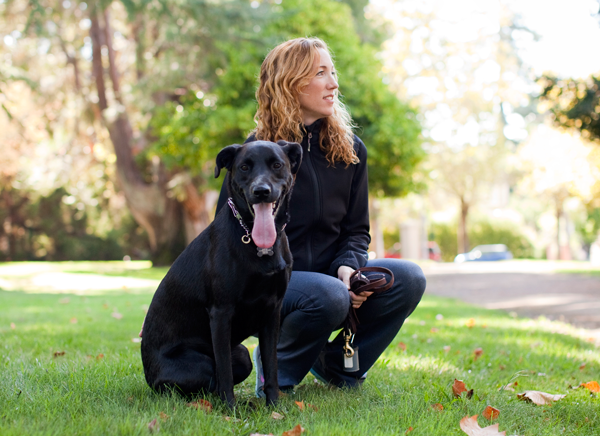
In 2009, Christine Carter felt like she had it all. On top of her dream job here at UC Berkeley’s Greater Good Science Center, she had two wonderful kids, a best-selling book called Raising Happiness, a popular blog, and frequent requests for speaking engagements.
Then she got sick. At first, it seemed like no big deal—just a little strep throat. She took a round of antibiotics, but didn’t recover; then she took more. Nine courses of antibiotics later, she still hadn’t healed. Instead, she ended up in the hospital with a severe kidney infection. The diagnosis?
“Exhaustion,” says Carter. “My body had basically lost the ability to heal itself.”
That’s when she realized something was really wrong. Her life had become completely out of whack, and it was taking its toll.
“Here I was, an expert on how to sustain high performance and be happy, and I could not get myself healthy, because I was overwhelmed and exhausted,” she says. “The irony was not lost on me.”
Carter began to chart a new course. Drawing on her background studying productivity, positive emotions, and well-being, she put together a plan to reinvent her life. That process, as well as correspondences from her readers who also felt overwhelmed by the pace of their lives, inspired her to write a book about her path to healing: The Sweet Spot: How to Find Your Groove at Home and Work which is being published this week by Ballantine Books.
Carter will be talking about The Sweet Spot tonight, January 21st, at 7:30 PM at the Hillside Club in Berkeley, in an event co-sponsored by Berkeley Arts & Letters and the Greater Good Science Center.
We sat down to discuss her book—and the science behind finding one’s sweet spot.
Jill Suttie: What exactly is the sweet spot?
Christine Carter: Most people think of the sweet spot as a point of maximum impact in sports—the point on a bat or racket that hits a ball with its greatest power, and with the least stress or resistance. So, as it applies to our lives, the sweet spot is the overlap between where we have the most ease in our lives and the place where we have our greatest strength.
Think of it as a Venn diagram, with a “strengths circle” and an “ease circle.” I tend to operate from my strengths circle: I’m a high achiever, I get a lot of hits. But, before I changed my life, I couldn’t get those hits without operating outside of my ease circle.
It’s pretty common for people to favor one side or the other. The trick is learning where your overlap is, and expanding that area of overlap.
JS: Your book is coming out just after the New Year, when many of us are thinking about forming better habits, using willpower and determination. But your book says that willpower isn’t the best way to create healthier habits. Why is that?
CC: The activities that we consciously control in our day-to-day lives are few and far between relative to everything that we do unconsciously, on autopilot. Our brain’s ability to train itself to do things without willpower, without self-control, without any sort of conscious control is one of our greatest advantages. Being able to do something with no effort or resistance, completely automatically—that’s the definition of ease.
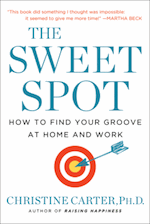
One of the ways I grew the ease part of my life is that I put a lot of my life on autopilot, so I wouldn’t use up my limited supply of willpower on things I could do automatically. The things that take self-control or willpower, for the most part, involve decision-making, and we don’t want our willpower muscles to become fatigued by every day decisions when they could be automated. We don’t’ really need to spend a lot of time deciding whether or not we’re going to exercise in the morning, or what to eat or what to wear. A lot of people spend time making decisions in the morning that, in my opinion, could be automated.
JS: But don’t you find people resist routines?
CC: It depends. Some people are high in novelty seeking, and they find it hard to get into routines, so they resist. And to them, I’d say: It’s not as hard as you think.
My husband and I are novelty seeking—we really love change. For me it’s important to automate mundane things in your life as a way to free up attention for new things, new endeavors. It’s not that I have less novelty or change now that so much is automated. It’s that I can seek change and growth in more important realms.
JS: In your book, when writing about the balance of mastery and ease, you start with the ease side of the equation—the importance of relaxation and taking breaks. Why start there?
CC: Because stress is pretty epidemic in North America and in the West. Most people don’t understand the benefits of ease, and they need to.
We have a whole cultural mantra around busyness—How are you? Oh, I’m really busy. By that I mean: I’m busy and important. I’ve got so much going on. Busyness is seen as a sign of success, and the marker of character and importance. If you’re not busy and stressed and overwhelmed, then the reverse might be true: You might not be important or very significant; you might be lazy and of low character. This is the big cultural thing we’re up against.
Researchers call busyness “cognitive overload.” The state of cognitive overload makes us worse at everything. It hinders our ability to organize ourselves, to plan, to think clearly, to be creative, to innovate. It makes us irritable. It impairs our verbal fluency, and our ability to remember social information. And it hinders our ability to control our emotions.
So it makes us worse at everything. When somebody tells me they’re busy, what I hear is, this is someone who is not fulfilling their potential. They’re not able to do the best work in this world that they can, or enjoy the work that they are doing or the life that they are leading.
JS: Speaking of busyness, it seems like we have become so enslaved to technology. How can we find more balance in our lives around technology use?
CC: I think it’s really important not to demonize technology, but to realize that something can happen in our brain with it: It provides what’s called “variable ratio reinforcement”—it’s like a slot machine. If you have your email open, and you see that you have a new message, your attention is drawn away from what you’re doing, because every so often the email is rewarding you in some way.
Also, we have a dual attention mechanism in our brains—like a seesaw—so we can either be focused on a task, getting things done, or our minds can wander and be unfocused. It can’t do both of those things at the same time. That’s why we get so stressed and overwhelmed with technology: because we’re constantly pulled between those two states. And that’s why it’s super important to close down your email, turn off alerts, and put your cell phone on sleep mode while you’re working on something else.
The other important thing is not to push yourself too far with technology. We turn ourselves into zombies if we have just been sitting in front of a screen all day. In order to do our best, most enjoyable work, we need to engage our mind-wandering mode from time to time. When our mind is wandering—when we’re staring into space or going for a walk in nature or doing anything but focusing on a task—there’s a neural network that’s constantly making connections, which can lead us to our greatest insights. Unfortunately, it’s the focusing part of our brain that often gets all of the credit for our work.
JS: One thing I appreciated in your book is how you included “ridiculously small” steps people could take to make real change. What ridiculously small step made a big difference in your life?
CC: The example I give in the book is still true for me: my better-than-nothing workout. Every morning, I do a one-minute plank, 20 push-ups, and 25 squats. Doing two years of just that, you should see—I have Michelle Obama arms! It only takes me three minutes. Three minutes, every morning.
Does that mean that I don’t do any other exercise? No, I get a lot of other exercise too, but not consistently. This better-than-nothing routine is what has made a huge difference in my overall health.
JS: The book is geared toward individuals changing their own lives. But, do you feel the book has a message for society at large?
CC: Many of the reasons we feel so overwhelmed and busy and don’t operate in our sweet spot come from social structures that aren’t working for us and from really big cultural lies—for instance, that busyness is a marker of importance, that more is almost always better.
I’m getting asked a lot now to come and talk at corporations to their administrative teams and big HR departments, and it’s thrilling to me to be able to expose them to these ideas. They may say they want to work smarter, not harder—but they don’t know what working smarter is!
At their companies, working smarter currently means working long hours. But if we examine what is really smarter—and how they can change their work culture—it will do a lot to undo those unhealthy and unproductive behaviors in their employees.
Jill Suttie writes about the science of wellbeing, and she is the book review editor for Greater Good, the online publication of UC Berkeley’s Greater Good Science Center. She is also a singer songwriter, and has recorded two CD of her original songs, both available at cdbaby.com/cd/jillsuttie.

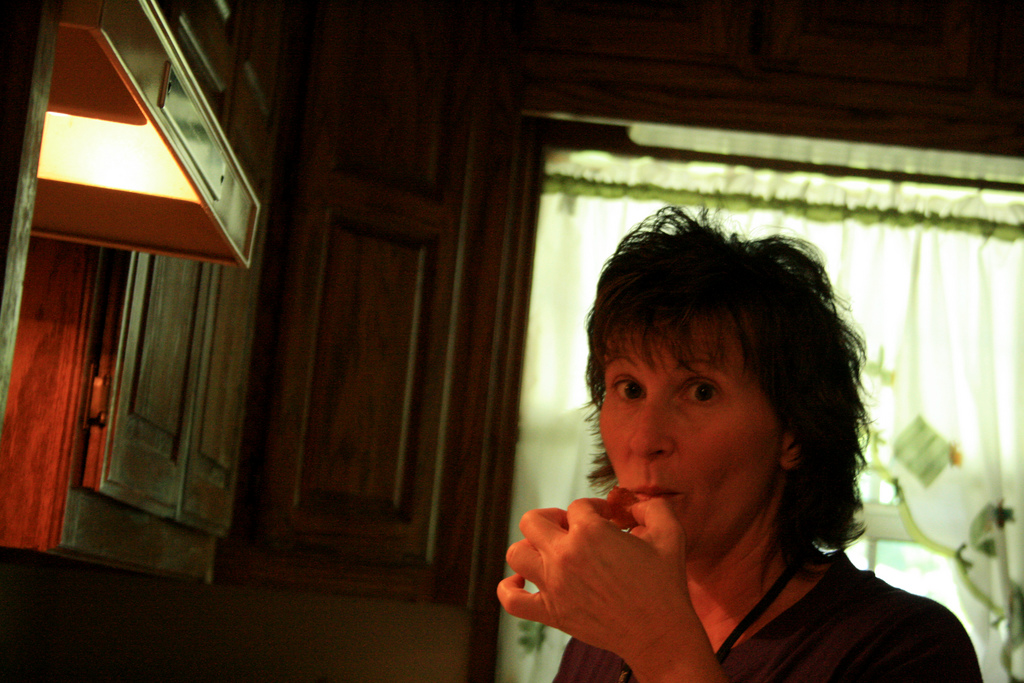

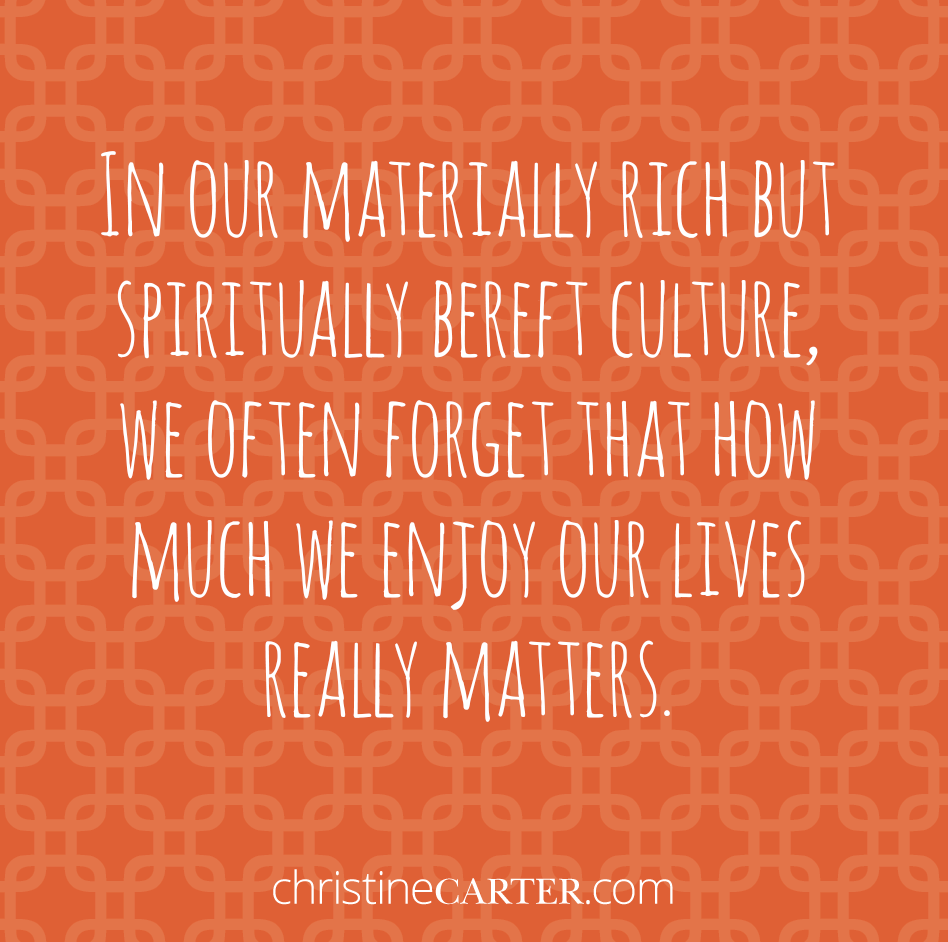
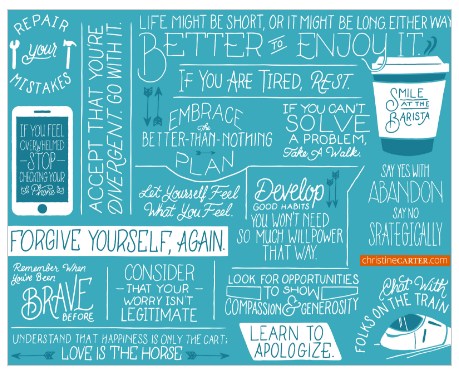
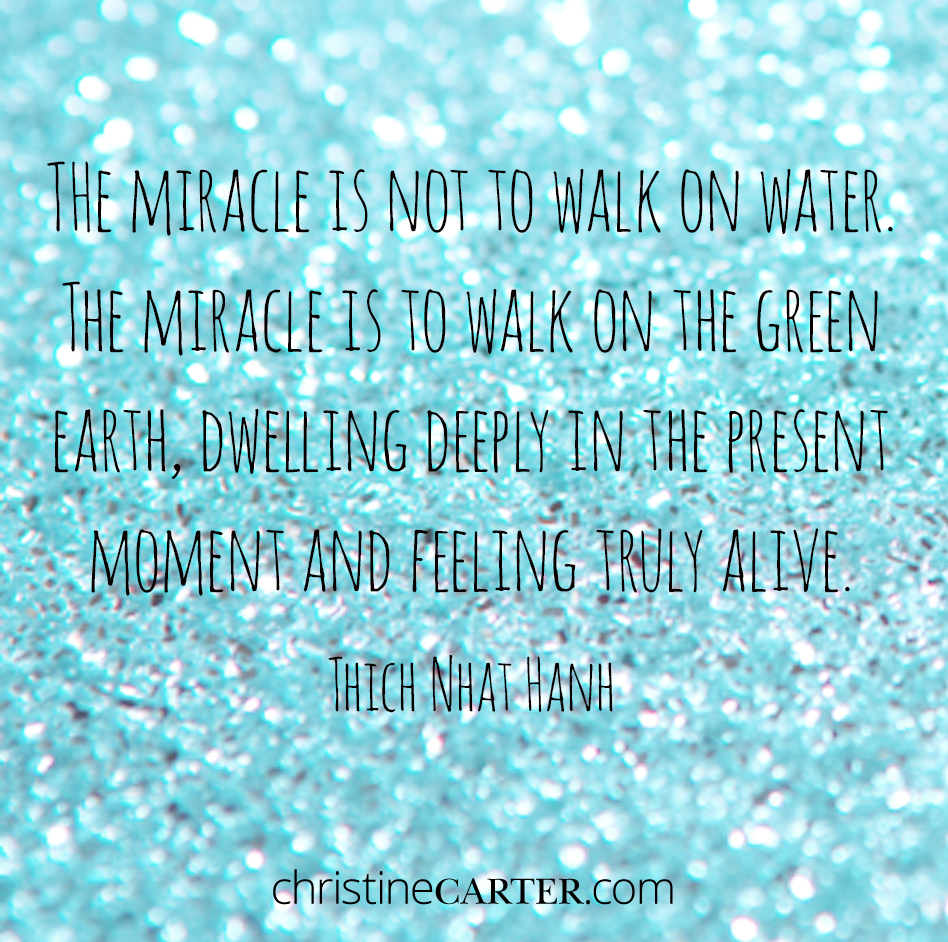 “The miracle is not to walk on water. The miracle is to walk on the green earth, dwelling deeply in the present moment and feeling truly alive.” –Thich Nhat Hanh
“The miracle is not to walk on water. The miracle is to walk on the green earth, dwelling deeply in the present moment and feeling truly alive.” –Thich Nhat Hanh